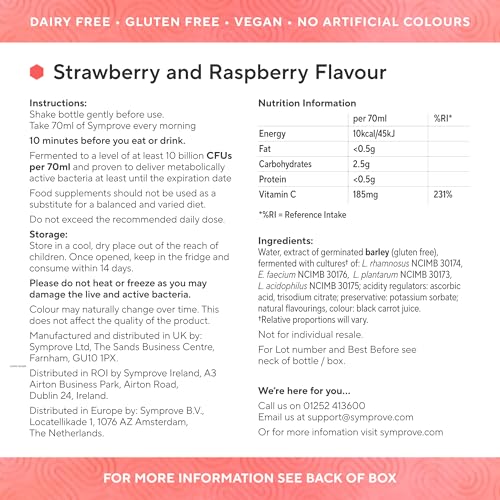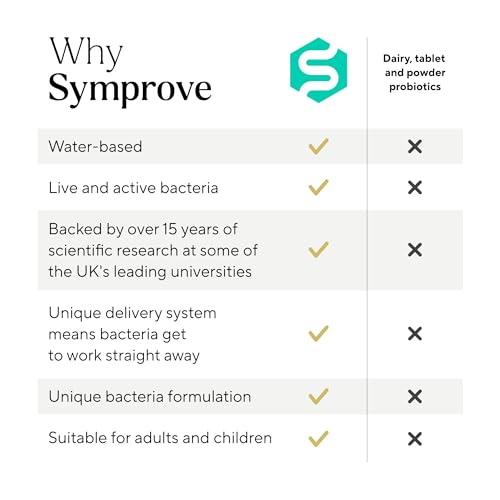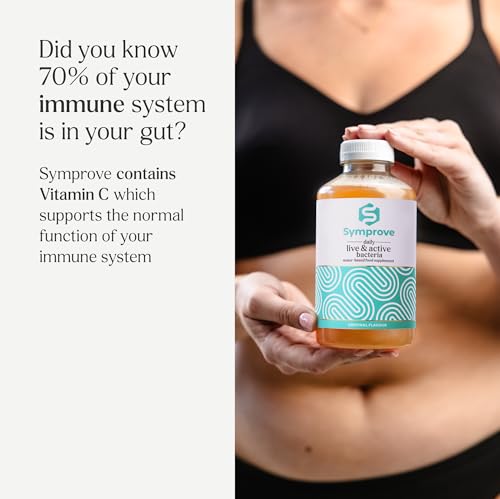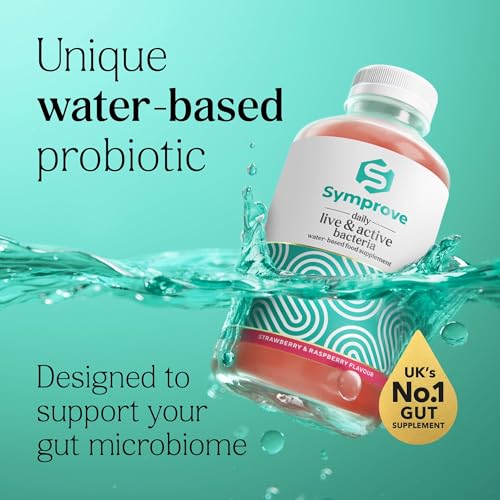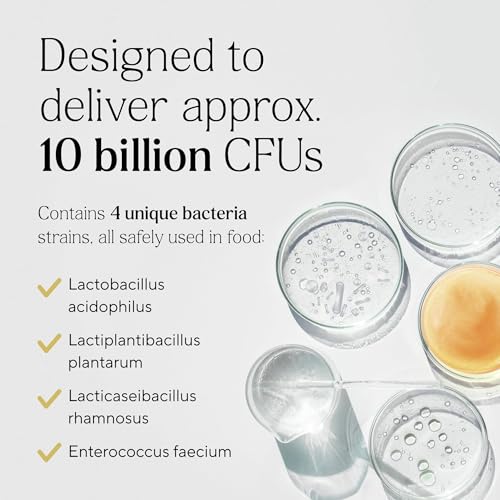








As a dog owner, I’ve experienced the worry and frustration that comes with seeing your furry friend suffer from stress colitis. This condition, often triggered by anxiety or changes in the environment, can cause significant discomfort for dogs and concern for their owners. Finding the right diet to help manage and alleviate the symptoms of stress colitis is crucial, and I’ve spent considerable time researching and testing various options.
Stress colitis in dogs manifests as inflammation of the colon, leading to symptoms such as diarrhoea, abdominal pain, and sometimes even blood in the stool. It can be distressing to watch your pet go through this, knowing that their discomfort is linked to their diet and emotional state. I’ve found that addressing the issue requires a holistic approach, focusing not only on calming their environment but also providing the best possible nutrition.
In this article, I’ll share my findings on the best dog foods specifically formulated to help manage stress colitis. These recommendations are based on my personal experiences, consultations with veterinarians, and extensive research into the ingredients and nutritional profiles that best support dogs suffering from this condition. My goal is to help fellow dog owners navigate the overwhelming array of options and find the most effective solutions to keep their pets healthy and happy.
Understanding Stress Colitis in Dogs: Causes and Symptoms
As a devoted dog owner, it can be distressing to see our furry friends experience health issues, especially when we don’t fully understand what’s happening. One such condition that can cause significant discomfort for dogs is stress colitis. It’s essential to recognise and comprehend the factors leading to this condition and the symptoms it manifests to provide appropriate care and support.
Stress colitis in dogs occurs when the colon becomes inflamed due to stress or anxiety. This inflammation disrupts normal digestive processes, leading to a range of uncomfortable symptoms. Understanding the root causes and recognising the early signs can make a substantial difference in managing this condition effectively.
Causes of Stress Colitis in Dogs
Several factors can trigger stress colitis in our canine companions. The most common cause is a sudden change in their environment or routine. Dogs are creatures of habit, and significant changes such as moving to a new home, a new family member (human or animal), or even a vacation can induce stress. Additionally, loud noises, such as thunderstorms or fireworks, can be significant stressors for many dogs.
Another contributing factor is the psychological state of the dog. Dogs that experience separation anxiety or those that are inherently anxious or nervous are more prone to developing stress colitis. Furthermore, physical stressors such as surgery, illness, or intense physical exertion can also play a role in triggering this condition.
Symptoms of Stress Colitis
The symptoms of stress colitis are primarily gastrointestinal, and they can vary in severity. One of the most noticeable signs is diarrhoea, which may contain mucus or blood. This symptom is a direct result of the inflammation in the colon disrupting normal digestive function. Alongside diarrhoea, dogs may also exhibit a sudden urgency to defecate, leading to accidents in the house.
Other symptoms include a decrease in appetite and general lethargy. Dogs suffering from stress colitis might appear uncomfortable or in pain, often showing signs such as hunching their back or excessive licking around the anal area. In some cases, vomiting can also occur. It’s important to note that these symptoms can overlap with other gastrointestinal conditions, so a proper veterinary diagnosis is crucial.
In conclusion, understanding the causes and symptoms of stress colitis in dogs enables us to respond promptly and effectively. By recognising the signs early and identifying potential stressors, we can take steps to minimise our dogs’ discomfort and improve their overall well-being.
How Diet Can Help Manage Stress Colitis in Dogs
When my dog started experiencing frequent bouts of diarrhoea and abdominal discomfort, I learned that stress colitis was the culprit. Stress colitis in dogs can be distressing, not only for the pet but also for the owner. I discovered that one of the most effective ways to manage this condition is through a carefully planned diet.
Adjusting my dog’s diet helped reduce inflammation and promote a healthier digestive system. This approach included choosing foods that are easy to digest, low in fat, and high in fibre. Understanding the role of nutrition in managing stress colitis was crucial for my dog’s recovery and overall wellbeing.
Key Dietary Considerations
Highly Digestible Foods: I began incorporating highly digestible foods into my dog’s diet. These foods are gentle on the stomach and help minimise irritation. Ingredients such as boiled chicken, rice, and sweet potatoes became staples, ensuring my dog received necessary nutrients without upsetting their stomach.
Low-Fat Diet: Reducing fat intake was another significant change. High-fat foods can exacerbate colitis symptoms, so I opted for lean protein sources like turkey and fish. This adjustment helped in reducing inflammation and improving my dog’s digestive health.
Increased Fibre: Including soluble fibre in the diet was beneficial. Foods like pumpkin and oatmeal added soluble fibre, which helped in firming up stools and regulating bowel movements. This made a noticeable difference in my dog’s condition.
Probiotics and Prebiotics: Adding probiotics and prebiotics supported my dog’s gut health. These supplements fostered a healthy balance of bacteria in the digestive tract, aiding in the reduction of colitis symptoms. I found that a combination of natural sources like yoghurt and specialised canine probiotic supplements worked best.
Avoiding Common Triggers: I also learned to identify and avoid common dietary triggers. Foods such as dairy, fatty treats, and certain grains can provoke colitis flare-ups. By eliminating these triggers, my dog’s digestive system remained more stable and less prone to stress-related issues.
Through these dietary adjustments, managing my dog’s stress colitis became more straightforward and effective. Observing my dog’s response to different foods and consistently providing a balanced diet made a significant difference in their quality of life.
Key Ingredients to Seek in Dog Food for Managing Stress Colitis
When it comes to alleviating stress colitis in dogs, choosing the right dog food is crucial. I’ve found that the ingredients in their food can significantly impact their digestive health. This condition, often exacerbated by stress, requires a thoughtful approach to diet to help manage symptoms and promote overall well-being.
Identifying the best ingredients can be a game-changer. It’s not just about avoiding harmful additives but ensuring that the food contains elements that support a healthy digestive tract. Here are some essential components to consider when selecting dog food for stress-related colitis.
Beneficial Ingredients for Digestive Health
-
High-Quality Protein Sources: Look for easily digestible proteins such as chicken, turkey, or lamb. These proteins are gentle on the stomach and help maintain muscle mass without causing additional digestive stress.
-
Prebiotics and Probiotics: Including ingredients that support gut health is vital. Prebiotics like chicory root and probiotics such as lactobacillus acidophilus aid in maintaining a balanced intestinal flora, which can reduce inflammation and improve nutrient absorption.
-
Fibre-Rich Ingredients: Soluble fibres like pumpkin and sweet potato can help firm up stools and regulate bowel movements. These ingredients are gentle on the digestive system and can provide a soothing effect.
-
Omega-3 Fatty Acids: Sources like fish oil or flaxseed are excellent for reducing inflammation. Omega-3 fatty acids have anti-inflammatory properties that can help calm the irritated lining of the intestines.
-
Limited Ingredient Formulas: Foods with fewer ingredients can minimise the risk of allergens and irritants that might exacerbate colitis symptoms. Choose diets that focus on a single protein source and a handful of other necessary components.
In addition to these primary ingredients, it’s also beneficial to avoid artificial additives, fillers, and by-products. Opting for natural, wholesome ingredients ensures that your dog’s digestive system isn’t burdened with unnecessary and potentially harmful substances.
Ultimately, the right combination of these ingredients can help manage stress colitis effectively, providing your dog with the relief and nutrition they need to thrive. Always consult with your vet to tailor the diet specifically to your dog’s unique needs.
Grain-Free vs. Grain-Inclusive: Which is Better for Dogs with Stress Colitis?
As a dog owner, I have often pondered the best dietary choices for my furry friend, especially when dealing with specific health issues like stress-induced colitis. This condition, characterised by inflammation of the colon, can cause significant discomfort and digestive issues for our pets. One of the primary considerations in managing this condition is the type of diet we choose, specifically whether to opt for grain-free or grain-inclusive dog food.
Understanding the impact of diet on colitis is crucial. Both grain-free and grain-inclusive diets have their proponents and critics, each with compelling arguments. Let’s explore the advantages and disadvantages of each option to help make an informed decision for dogs suffering from stress-related colitis.
Grain-Free Diets: Benefits and Concerns
Grain-free dog foods have gained popularity in recent years, often being marketed as a healthier option for dogs with sensitive stomachs and food allergies. One of the primary benefits of grain-free diets is their focus on high-quality protein sources and the exclusion of common grains like wheat, corn, and soy, which can sometimes exacerbate digestive issues.
- Potential Benefits: Many grain-free formulations include ingredients like sweet potatoes and peas, which are easier to digest and less likely to cause allergic reactions. This can be particularly beneficial for dogs with stress colitis, as these foods may reduce inflammation and soothe the digestive tract.
- Concerns: However, there have been concerns about the nutritional adequacy of grain-free diets. Some studies suggest a potential link between grain-free diets and canine dilated cardiomyopathy (DCM), a serious heart condition. While more research is needed, it’s essential to consider these risks, especially for breeds predisposed to DCM.
Grain-Inclusive Diets: Traditional and Reliable
Grain-inclusive diets have been the standard for many years, providing a balanced mix of protein, carbohydrates, and essential nutrients. These diets include grains such as rice, oats, and barley, which can offer significant benefits for dogs with stress colitis.
- Digestive Health: Whole grains are a good source of fibre, which can aid in maintaining healthy digestion and regular bowel movements. For dogs with colitis, the right amount of fibre can help manage symptoms and improve overall gut health.
- Nutrient-Rich: Grains contain essential vitamins and minerals that contribute to a balanced diet. For instance, brown rice is rich in B vitamins and iron, which are crucial for a dog’s energy levels and immune system.
Ultimately, the decision between grain-free and grain-inclusive diets should be based on your dog’s specific health needs, preferences, and any advice from your veterinarian. Each dog is unique, and what works for one may not work for another. Paying close attention to your dog’s reaction to their diet and making adjustments as necessary is key to managing stress colitis effectively.
Homemade Dog Food Recipes for Relieving Stress Colitis
When my dog started showing signs of stress colitis, I was determined to find a solution that would bring him relief. After consulting with my veterinarian, I decided to prepare homemade meals tailored specifically for his condition. By controlling the ingredients and ensuring they were easily digestible, I could better manage his symptoms and support his digestive health.
Stress colitis can be challenging for both dogs and their owners. One of the main goals is to provide a diet that is gentle on the stomach while still being nutritious. Through trial and error, I discovered a few recipes that worked wonders for my dog, and I hope they can help others facing similar issues.
Recipes to Ease Stress Colitis in Dogs
1. Simple Chicken and Rice
- Ingredients:
- 1 cup boneless, skinless chicken breast, boiled and shredded
- 1 cup white rice, cooked
- 1/2 cup carrots, steamed and finely chopped
- Instructions: Mix the chicken, rice, and carrots together. Serve in small portions to ensure easy digestion.
2. Turkey and Sweet Potato
- Ingredients:
- 1 cup ground turkey, cooked
- 1 cup sweet potato, peeled and mashed
- 1/2 cup green beans, steamed and chopped
- Instructions: Combine the turkey, sweet potato, and green beans. This meal is rich in nutrients and gentle on the stomach.
3. Oatmeal and Pumpkin Delight
- Ingredients:
- 1 cup plain oatmeal, cooked
- 1/2 cup pumpkin puree (unsweetened)
- 1/4 cup applesauce (unsweetened)
- Instructions: Mix the oatmeal, pumpkin puree, and applesauce together. This recipe helps with digestion and soothes the stomach.
Creating homemade meals for my dog not only helped alleviate his stress colitis symptoms but also allowed me to feel confident in the quality of his diet. These recipes focus on simplicity and digestibility, key factors in managing this condition. Always consult with your veterinarian before making significant changes to your pet’s diet to ensure it’s suitable for their specific needs.
Commercial Dog Food Brands Recommended for Stress Colitis
When dealing with stress-induced colitis in dogs, it’s crucial to choose the right commercial dog food that can help alleviate symptoms and promote digestive health. I’ve researched extensively and consulted with veterinarians to identify several brands that are particularly effective for managing this condition.
These dog foods are specifically formulated to be gentle on the digestive system while providing essential nutrients to support overall health. The ingredients in these products are carefully selected to minimise irritation and inflammation in the gastrointestinal tract, which is especially important for dogs experiencing stress colitis.
Recommended Brands and Their Benefits
-
Hill’s Prescription Diet i/d Digestive Care
Hill’s Prescription Diet i/d is designed for dogs with sensitive stomachs and digestive issues. It contains a blend of prebiotics and low-fat ingredients to support digestive health. The high digestibility of this food helps to ensure that your dog receives all the nutrients they need while reducing gastrointestinal distress.
-
Royal Canin Gastrointestinal Low Fat
Royal Canin’s Gastrointestinal Low Fat formula is another excellent choice for dogs with stress colitis. This food is formulated with highly digestible proteins, prebiotics, and a low-fat content to ease the digestive process. Additionally, it includes omega-3 fatty acids, which help reduce inflammation in the gut.
-
Purina Pro Plan Veterinary Diets EN Gastroenteric Formula
Purina Pro Plan Veterinary Diets EN is crafted to support dogs with various gastrointestinal conditions, including stress colitis. This food features a balanced blend of fibres to promote a healthy gut flora and highly digestible nutrients to support easy nutrient absorption. The inclusion of medium-chain triglycerides (MCTs) provides a readily available energy source that is easier on the digestive system.
Each of these brands offers unique benefits tailored to dogs suffering from stress colitis, ensuring they receive the necessary support for their digestive health while maintaining overall well-being.
Transitioning Your Dog to a New Diet: A Safe Approach
When it comes to switching your dog’s food, especially in the context of managing stress colitis, a careful transition is paramount for their well-being. Here’s how I ensure a smooth shift to a new diet:
Gradual Introduction
Firstly, I never rush the transition. Abrupt dietary changes can upset your dog’s digestive system, exacerbating their stress colitis symptoms. Instead, I opt for a gradual introduction of the new food over the course of about a week.
- I start by mixing a small amount of the new food with their current one, ensuring a ratio of around 25% new food to 75% old food.
- Over the next few days, I incrementally increase the proportion of the new food while decreasing the old food. This slow adjustment allows their system to adapt gradually.
Monitoring Response
Throughout the transition, I keep a close eye on my dog’s response to the new diet. Monitoring their stool consistency, energy levels, and overall demeanor helps me gauge how well they’re adjusting.
- If I notice any signs of digestive upset, such as diarrhea or vomiting, I scale back on the new food and give their system more time to acclimate before proceeding.
- On the other hand, if they’re tolerating the new diet well, I continue the gradual transition until they’re fully switched over.
By taking a patient and observant approach to transitioning my dog’s diet, I prioritize their digestive health and well-being, ultimately helping to manage their stress colitis more effectively.
Managing Stress Colitis with Effective Supplements and Additives
When it comes to alleviating stress colitis in dogs, incorporating supplements and additives into their diet can play a crucial role in promoting digestive health and overall well-being. As a conscientious pet owner, I’ve explored various options that have shown promising results in managing this condition.
One essential addition to my dog’s diet is probiotics, which are beneficial bacteria that help restore balance in the gut microbiome. Probiotics aid in reducing inflammation and promoting healthy digestion, which is particularly beneficial for dogs experiencing stress-induced colitis. Incorporating probiotic-rich foods such as yogurt or adding a high-quality probiotic supplement to their meals can contribute to a healthier digestive system.
- Omega-3 Fatty Acids: Another valuable supplement for managing stress colitis is omega-3 fatty acids. These essential fats have anti-inflammatory properties that can help soothe irritated intestines and promote healing. Adding sources of omega-3s, such as fish oil or flaxseed oil, to my dog’s diet has proven to be beneficial in reducing the severity of colitis symptoms.
- Digestive Enzymes: Digestive enzymes play a vital role in breaking down food and aiding in nutrient absorption. For dogs with stress colitis, incorporating digestive enzyme supplements can ease the burden on the digestive system, allowing food to be more efficiently processed. This can help alleviate symptoms such as diarrhea and abdominal discomfort.
- Slippery Elm Bark: A natural remedy that I’ve found effective in managing stress colitis is slippery elm bark. This herb contains mucilage, a gel-like substance that coats and soothes the digestive tract, reducing inflammation and promoting healing. Adding powdered slippery elm bark to my dog’s food can provide relief from gastrointestinal distress.
Monitoring and Adjusting Your Dog’s Diet for Optimal Health
Ensuring your dog’s diet supports their overall well-being involves continuous monitoring and occasional adjustments. Here are some key steps to keep your furry friend healthy and happy:
Regular Check-ups: Schedule routine visits with your veterinarian to assess your dog’s health and nutritional needs. Your vet can provide valuable insights and recommend dietary changes if necessary.
Monitoring Dietary Response:
- Observe Digestive Health: Keep an eye on your dog’s stools. Healthy stools are firm and well-formed. Loose stools or diarrhoea may indicate a need to adjust their diet.
- Watch for Allergic Reactions: Monitor your dog for any signs of allergic reactions to specific ingredients in their food, such as itching, skin irritations, or digestive issues.
- Assess Weight and Body Condition: Regularly evaluate your dog’s weight and body condition score. Adjust their food portions accordingly to maintain a healthy weight.
Flexibility in Diet:
- Experiment with Different Foods: Introduce variety into your dog’s diet by trying different high-quality dog foods or home-cooked meals. This can prevent nutritional deficiencies and boredom.
- Consider Supplements: Consult your vet about adding supplements like probiotics or omega-3 fatty acids to support your dog’s digestive and immune health.
By staying vigilant and responsive to your dog’s dietary needs, you can ensure they enjoy a balanced diet that promotes optimal health and happiness.
Best Dog Food For Stress Colitis
Features
| Part Number | RO305370 |
| Model | RO305370 |
| Warranty | 2 year manufacturer |
| Release Date | 2019-06-01T00:00:01Z |
| Size | 12 kg (Pack of 1) |
| Language | English |
| Price history for Royal Canin Medium Digestive Care Dog Food | |
|---|---|
|
Latest updates:
|
|
Features
| Part Number | 12274091 |
| Model | 12274091 |
| Release Date | 2015-08-24T00:00:01Z |
| Size | 1 count (Pack of 1) |
| Language | Spanish |
| Price history for Pro Plan Gastrointestinal Dog Food 12Kg | |
|---|---|
|
Latest updates:
|
|
Features
| Part Number | 1NU06595 |
| Model | 052742181103 |
| Release Date | 2017-02-28T00:00:01Z |
| Size | 1 g (Pack of 4320) |
| Language | Italian |
| Price history for Hill's Prescription Diet Digestive Health Food | |
|---|---|
|
Latest updates:
|
|
Features
| Part Number | HARRTV-15 |
| Model | HARRTV-15 |
| Color | Turkey |
| Is Adult Product | |
| Size | 15 kg (Pack of 1) |
| Language | English |
Features
| Is Adult Product | |
| Release Date | 2025-05-17T00:00:01Z |
| Language | English |
| Number Of Pages | 213 |
| Publication Date | 2025-05-17T00:00:01Z |
Features
| Part Number | RO305390 |
| Model | RO305390 |
| Warranty | 2 year manufacturer |
| Release Date | 2019-06-01T00:00:01Z |
| Size | 12 kg (Pack of 1) |
| Language | English |
| Price history for Royal Canin Maxi Digestive Care Dog Food | |
|---|---|
|
Latest updates:
|
|
Features
| Part Number | 501010 |
| Model | 501010 |
| Release Date | 2019-12-23T00:00:01Z |
| Size | 14 kg (Pack of 1) |
Features
| Part Number | S&R 4 Week |
| Size | 500 ml (Pack of 4) |
Q&A:
What is the best dog food for stress colitis?
The best dog food for stress colitis is one that is easily digestible and gentle on the stomach. Look for options that contain high-quality proteins, limited ingredients, and are free from artificial additives and preservatives.
Are there specific ingredients I should look for in dog food for stress colitis?
Yes, look for dog foods that contain easily digestible proteins such as chicken or turkey, and carbohydrates like rice or sweet potatoes. Avoid ingredients known to trigger digestive issues such as corn, soy, and wheat.
Should I consider grain-free options for my dog with stress colitis?
Grain-free options can be considered, but it’s essential to choose a formula that still provides adequate nutrients and fibre from alternative sources like peas, lentils, or chickpeas. Monitor your dog’s reaction to grain-free diets as some may still experience digestive issues.

































